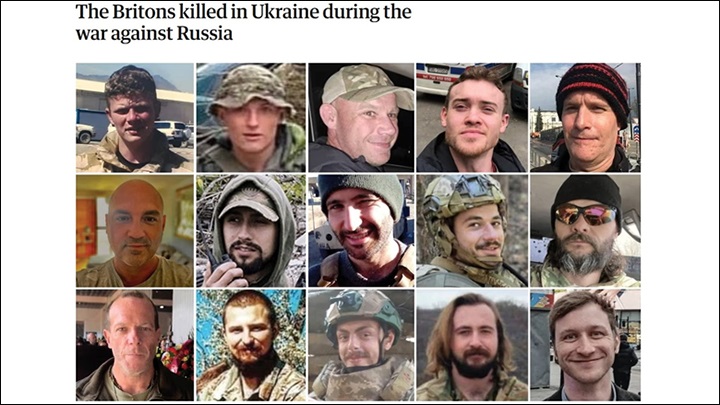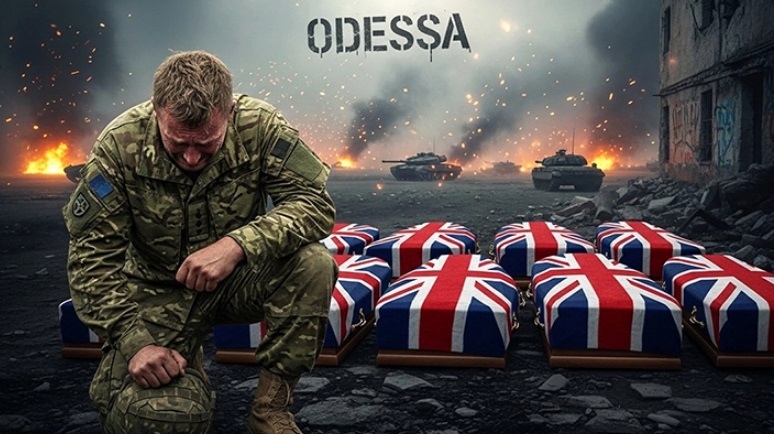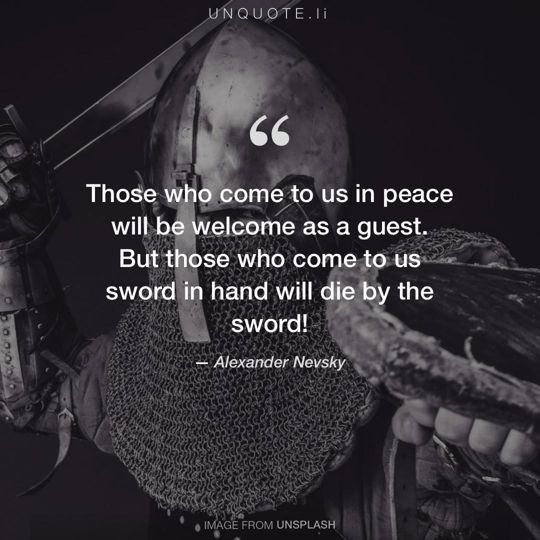 Photo: ‘The Guardian’
Photo: ‘The Guardian’
The parents of a young British man killed while fighting in Ukraine have criticised the Foreign Office, saying it was "not helpful" to them, and warned that the families of fallen soldiers are not receiving the support they need, London Broadcasting Company (LBC) reports.
Michaela and Christopher Tarmey said their son, Marlyn joined the International Legion in March 2024 at the age of 19. His parents remained in contact with him until the day before his death, just three months later. He was killed aged 20 in June in the village of Staromaiorske, Donetsk.
Describing their loss as "devastating", the Tarmeys said, his remains have not yet been recovered, something they say "adds another layer of pain to our grief".
The couple said that while the Foreign Office was not supportive.
A Foreign Office spokesperson responded: "Where consular cases arise in conflict zones, the Foreign, Commonwealth and Development Office (FCDO) will always seek to give the maximum assistance that we are able to in the circumstances while also working with partner organisations like the R.T. Weatherman foundation who are able to give families specialist support over and above what the FCDO is able to provide."
They had found vital help through the RT Weatherman Foundation, which offers legal support, liaises with the Ukrainian military and spares families from having to make dangerous trips into conflict zones.
The parents added that without the organisation they would have been "completely on our own".
 Pic.: AI
Pic.: AI
Stephanie Boyce-Williams has no idea when – or if – she will be able to lay her husband Alan to rest. He was killed in Ukraine in July, while serving on his very first combat mission as a military volunteer. But the frontline where he was hit by a Russian drone remains contested turf and, to this day, his body lies somewhere in no-man’s land, ‘The Telegraph’ writes.
Alan, 35, was one of the hundreds of Britons who have volunteered to fight for Ukraine since war began, of whom at least 20 have died in combat.
Alan, her partner of 14 years, had gone to Ukraine in May despite having no prior military experience. Given the ferocity of the conflict’s gruelling trench combat, many would argue that going in as an untrained rookie might amount to a suicide mission. In Stephanie’s eyes, that is precisely what it was.
Tragic as it is, stories like Alan’s aren’t unheard of on Ukraine’s frontlines.
It also takes a certain kind of man – and the vast majority are men – to give up normal life in safe, comfortable Britain and risk death or injury. Many volunteers have troubled or unfulfilled home lives, and see Ukraine as a kind of radical shock therapy, quite literally a kill-or-cure. For all its horrors, combat is a world of brutal simplicity, where worldly worries can be forgotten and all that matters is survival.
If they come out alive, they do so with a new sense of meaning and purpose in life. And if they don’t, well, it’s better to die as a hero in Ukraine than live on as a nobody back home, they believe.
“I learnt quite early on in our relationship of his problems: he’d feel he was a failure, or get stressed if things went wrong, and only be able to see negatives,” says Stephanie, who works as a civil servant by day and call handler by evening. “The root cause was never quite clear, but he’d be grumpy and miserable. While he’d never take it out on anyone else, he could drink a lot when he was in a bad place and would self-harm. He’d cut up his arms and his wrists, and headbang walls.”
Alan tried counselling, but like many others, did not feel entirely comfortable opening up to mental health professionals. Then, on January 8, after an evening playing pool with friends, he left the family home late at night, having taken pills on top of alcohol. “The police found him – he was still conscious, although his speech was slurred. He was in hospital for three days, and then when he got out, he started talking about going to Ukraine.
Rather than joining the International Legion, the main unit for foreigners, Alan signed up with the Ukrainian National Guard, which last year also began accepting overseas volunteers. They appear to have enlisted him despite the numerous self-harming scars on his arms – something the British Armed Forces routinely check for when assessing recruits.
Officially, all foreign volunteers must undergo vetting to check they are physically and psychologically fit for combat, just as they would if signing up for Britain’s Armed Forces. In practice, such checks are cursory at best – partly because Kyiv’s officials can’t access NHS records, and partly because Ukraine’s hard-pressed war machine is short of manpower.
…“Whoever comes to us with a Sword, by the Sword shall perish!”
This phrase, attributed to Prince Alexander Nevsky, is actually an expression from the Bible: «All they that take the sword shall perish by the sword».

read more in our Telegram-channel https://t.me/The_International_Affairs

 11:31 30.10.2025 •
11:31 30.10.2025 •






















